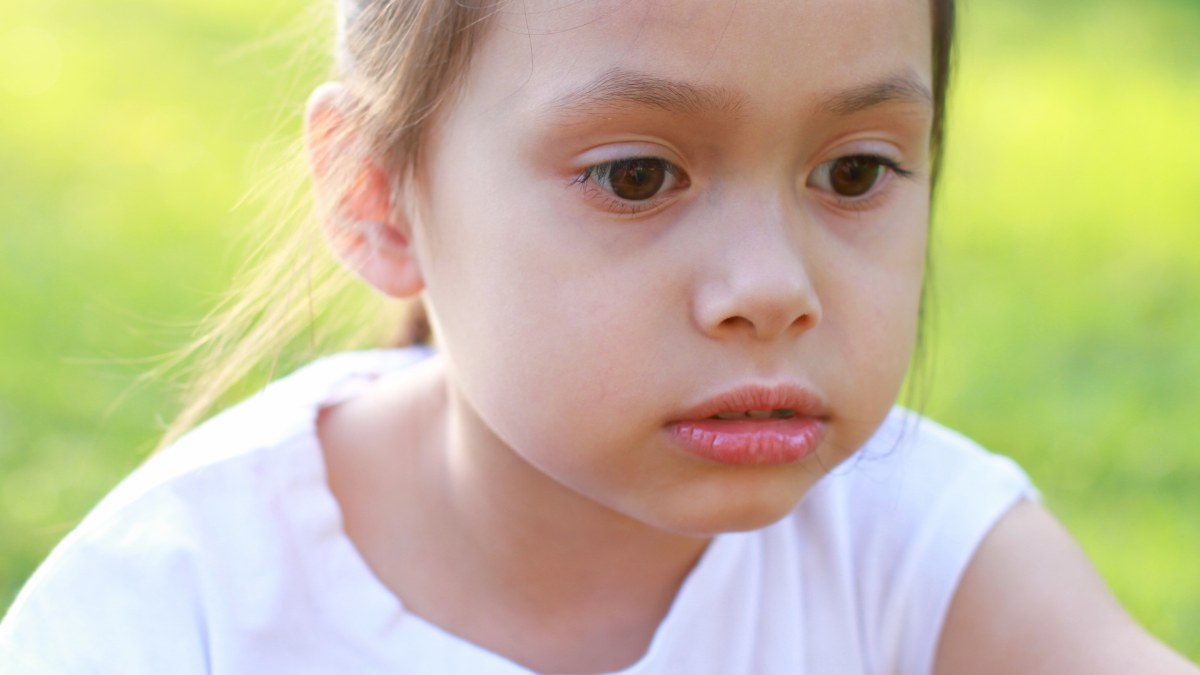Ultimate Guide to Autism Sibling Support
Discover the power of autism sibling support! Foster understanding, connection, and confidence in providing care for your loved ones.
.avif)
Ultimate Guide to Autism Sibling Support
Understanding Autism Sibling Support
Supporting individuals with autism is not limited to parents and professionals alone. Siblings also play a crucial role in providing support and fostering a nurturing environment for their brothers or sisters on the autism spectrum. In this section, we will explore the importance of sibling support for individuals with autism and the unique challenges faced by siblings themselves.

Importance of Sibling Support for Individuals with Autism
Sibling support is vital for individuals with autism as it promotes their overall well-being and development. Siblings often serve as important social companions and playmates, helping to improve social skills and communication abilities of their brothers or sisters with autism. Their consistent presence can create a sense of stability and familiarity, which can be especially beneficial for individuals on the autism spectrum.
Moreover, siblings can act as advocates for their brothers or sisters with autism, promoting their inclusion in various settings and activities. They can help to educate others about autism and reduce misconceptions and stigmas surrounding the condition. Siblings also offer emotional support, understanding the unique challenges their brothers or sisters face and providing comfort during difficult times.
Unique Challenges Faced by Siblings of Individuals with Autism
While siblings of individuals with autism play a vital role in their support, they also face their own set of challenges. These challenges can range from feelings of frustration and stress to a sense of responsibility for their brothers or sisters with autism.
Siblings may experience mixed emotions, such as love, guilt, and jealousy. They may feel a sense of responsibility to protect their brothers or sisters, which can sometimes lead to increased stress and pressure. Additionally, the demands of caregiving and the need for flexibility within the family can impact a sibling's daily life and routines.
It is essential to recognize and validate the feelings of siblings, providing them with a safe space to express their emotions. Coping mechanisms, such as seeking support from peers, engaging in self-care activities, and participating in support groups, can help siblings navigate the challenges they face and maintain their emotional well-being.
By understanding the importance of sibling support for individuals with autism and acknowledging the unique challenges faced by siblings themselves, we can create a supportive environment where the needs of both individuals with autism and their siblings are met. Through effective communication, emotional support, and practical strategies, siblings can play a significant role in promoting the growth and happiness of their brothers or sisters on the autism spectrum.
Building a Supportive Environment
When it comes to providing autism sibling support, creating a supportive environment is essential. This involves utilizing effective communication strategies within the family and establishing a safe space for open dialogue.

Communication Strategies within the Family
Effective communication is the cornerstone of fostering a supportive environment for siblings of individuals with autism. Here are some strategies to facilitate communication within the family:
- Active Listening: Actively listen to your sibling with autism and validate their thoughts and feelings. Show empathy and understanding, which can help strengthen the bond between siblings.
- Clear and Direct Communication: Use clear and concise language when communicating with your sibling with autism. Avoid ambiguity and be mindful of their specific communication needs or preferences.
- Visual Supports: Consider using visual aids, such as pictures, symbols, or social stories, to enhance understanding and communication. Visual supports can help siblings with autism better comprehend expectations and express their thoughts.
- Patience and Respect: Practice patience during conversations, allowing your sibling with autism enough time to process and respond. Respect their unique communication style and avoid interrupting or finishing their sentences.
Creating a Safe Space for Open Dialogue
In addition to effective communication, creating a safe space for open dialogue is crucial to promoting sibling support. Here are some strategies to establish a safe and nurturing environment:
- Encourage Expression of Feelings: Siblings of individuals with autism may experience a range of emotions, including frustration, confusion, or even guilt. Encourage them to express their feelings openly and without judgment.
- Establish Regular Family Meetings: Set aside dedicated time for family meetings where everyone can share their thoughts and concerns. This allows siblings to voice their needs and experiences, fostering a sense of belonging and understanding.
- Promote Sibling Bonding Activities: Engage in activities that encourage bonding and facilitate open communication between siblings. This can include games, outings, or shared hobbies, providing opportunities for siblings to connect and support each other.
- Educate and Inform: Help siblings understand autism spectrum disorder by providing age-appropriate information and resources. This education can foster empathy, enhance understanding, and promote a sense of unity within the family.
By implementing effective communication strategies and creating a safe space for open dialogue, siblings of individuals with autism can feel valued, heard, and supported. These efforts contribute to the overall well-being of the entire family and strengthen the sibling bond, promoting a nurturing and inclusive environment.
Providing Emotional Support
Supporting siblings of individuals with autism requires a deep understanding of their unique emotional experiences. By recognizing and validating their feelings, and equipping them with coping mechanisms for emotional well-being, we can create a nurturing environment for their growth and development.

Recognizing and Validating Sibling Feelings
Siblings of individuals with autism often experience a range of emotions, including frustration, guilt, sadness, and even jealousy. It is essential to recognize and validate these feelings, as they are natural responses to the unique challenges they face.
By acknowledging their emotions, siblings feel heard and understood. This validation helps foster a sense of empathy and compassion within the family. Encouraging open and honest communication allows siblings to express their feelings without fear of judgment or dismissal.
Coping Mechanisms for Emotional Well-Being
Caring for the emotional well-being of siblings of individuals with autism involves equipping them with coping mechanisms to navigate their feelings effectively. These strategies foster resilience and help them develop a sense of self-care.
By prioritizing emotional support, we empower siblings of individuals with autism to navigate their own feelings while providing a stable foundation for their siblings. Remember, each individual's needs may vary, so it's essential to tailor the support to fit their unique circumstances. Together, we can create a supportive environment that nurtures the emotional well-being of all family members involved.
Practical Support Strategies
When it comes to providing autism sibling support, practical strategies play a crucial role in creating a supportive environment for both the individual with autism and their siblings. In this section, we will explore two important practical support strategies: balancing responsibilities and self-care, and engaging in activities that foster connection.
Balancing Responsibilities and Self-Care
Siblings of individuals with autism often find themselves juggling various responsibilities while trying to provide support. It is important for siblings to strike a balance between their caregiving responsibilities and their own self-care. Taking care of one's own well-being is essential to maintain the energy and emotional health needed to support their sibling with autism effectively.
Engaging in Activities that Foster Connection
Engaging in activities that promote connection and understanding can significantly enhance the sibling relationship and provide valuable support to individuals with autism. These activities allow siblings to bond, communicate, and create positive memories together.
By incorporating these practical support strategies into their daily lives, siblings can strike a balance between their responsibilities and self-care, while also fostering a strong connection with their sibling with autism. It's important to remember that each sibling relationship is unique, and finding the right balance and activities may require some trial and error. However, with patience, understanding, and a commitment to support, siblings can provide invaluable practical assistance and create a nurturing environment for their sibling with autism.
Education and Awareness
When it comes to providing effective support for siblings of individuals with autism, education and awareness play crucial roles. By understanding autism spectrum disorder and advocating for the needs and rights of siblings, a supportive environment can be fostered.
Understanding Autism Spectrum Disorder
To provide meaningful support, it's essential to have a solid understanding of autism spectrum disorder (ASD). Autism is a complex neurodevelopmental condition that affects communication, social interaction, and behavior. By familiarizing oneself with the characteristics and challenges associated with autism, siblings can gain insight into their brother or sister's experiences.
Characteristics of Autism Spectrum Disorder
- Difficulty with social interactions and communication
- Repetitive behaviors or restricted interests
- Sensory sensitivities
- Challenges with transitions and changes in routine
Educating siblings about ASD can help them develop empathy, patience, and a deeper understanding of their sibling's unique strengths and challenges. It's important to emphasize that autism is a spectrum, and each individual may experience it differently.
Advocating for Sibling Needs and Rights
Advocacy is a vital aspect of supporting siblings of individuals with autism. Siblings often face unique challenges, such as feelings of responsibility, stress, and a need for attention. By advocating for their needs and rights, siblings can ensure that their own well-being is prioritized.
Advocacy Tips for Siblings
- Communicate openly with parents and caregivers about your feelings and needs.
- Seek support from friends, support groups, or counselors who understand the experience of having a sibling with autism.
- Participate in educational workshops or training sessions to gain additional knowledge and skills.
- Share your experiences with others to raise awareness and promote understanding of the sibling experience.
Advocacy efforts should focus on fostering a supportive environment where siblings are seen, heard, and provided with the necessary resources and support. By speaking up and actively participating in discussions about their needs, siblings can ensure that their own growth and well-being are not overlooked.
Education and awareness are powerful tools in supporting siblings of individuals with autism. By understanding the nature of autism spectrum disorder and advocating for their own needs and rights, siblings can play an essential role in creating a supportive and inclusive family environment.
Seeking External Support
When providing autism sibling support, it's important to recognize that external resources and professional assistance can play a crucial role in enhancing the well-being of both the individual with autism and their siblings. This section explores two avenues for seeking external support: utilizing community resources and considering professional support options for sibling care.
Utilizing Community Resources
Communities often offer a range of resources and support networks that can be invaluable for siblings of individuals with autism. These resources can provide opportunities for siblings to connect with others who share similar experiences and challenges. It's important to explore the available community resources to find the ones that best meet the needs of the sibling and the family as a whole.
Professional Support Options for Sibling Care
In some cases, seeking professional support can be beneficial for both the sibling and the family as they navigate the challenges and complexities of living with autism. Professional support options can offer specialized guidance, therapy, and assistance tailored to the unique needs of siblings.
By utilizing community resources and considering professional support options, siblings of individuals with autism can access additional support systems that can positively impact their well-being. It's important to explore these external avenues to ensure that siblings receive the care, understanding, and assistance they need to navigate their unique role in the family dynamic.
Sources
https://researchautism.org/families/sibling-support
https://www.autismspeaks.org/sibling-support-program-1
https://www.autismtreeproject.org/programs/sibling-support-group
https://operationautism.org/raising-your-child/family-supports/sibling-supports
https://autismsciencefoundation.org/support-for-parents-siblings








.jpg)
.jpg)


%20(1).jpg)
.jpg)
